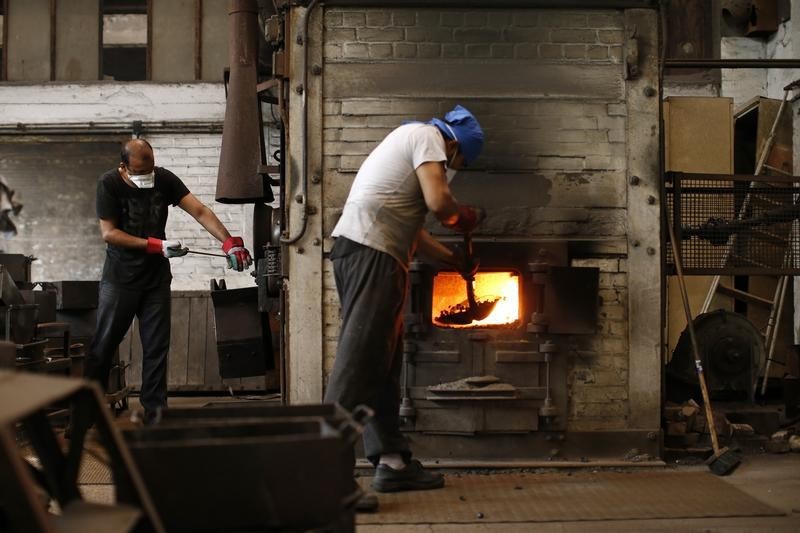ISTANBUL (Reuters) - Turkish manufacturing activity expanded for the first time in 22 months, a business survey showed on Monday, with new orders returning to growth and the rate of output expansion quickening.
After a currency crisis in 2018, factory activity shrank for 17 consecutive months before holding steady in September. In October it returned to contraction, however.
The Purchasing Managers' Index (PMI) for manufacturers rose to 51.3 in January, exceeding the 50-point line that separates expansion from contraction for the first time since March 2018, the Istanbul Chamber of Industry and IHS Markit panel said.
New orders returned to growth with improving customer demand and new export order also increased, ending a five-month moderation, the panel said.
Manufacturers expanded production for the third consecutive month, as a result of the rise in new orders, it said, adding that some firms using inventories to meet new business led to the sharpest decrease in stocks since July.
Employment rose for the first time in three months, which the panel linked to the need for additional resources. Input prices rose at the fastest pace in six months, which panelists said was due to ongoing currency weakness, while output prices rose at a moderate pace.
"PMI data for January signaled that the Turkish manufacturing sector made a positive start to 2020. Renewed growth of new orders encouraged firms to accelerate the pace of output expansion, resulting in the need for additional staff," said Andrew Harker, associate director at IHS Markit.
"The relationship between the PMI data and official figures suggests that industrial production growth is running at above 5% year-on-year at the start of the year."
